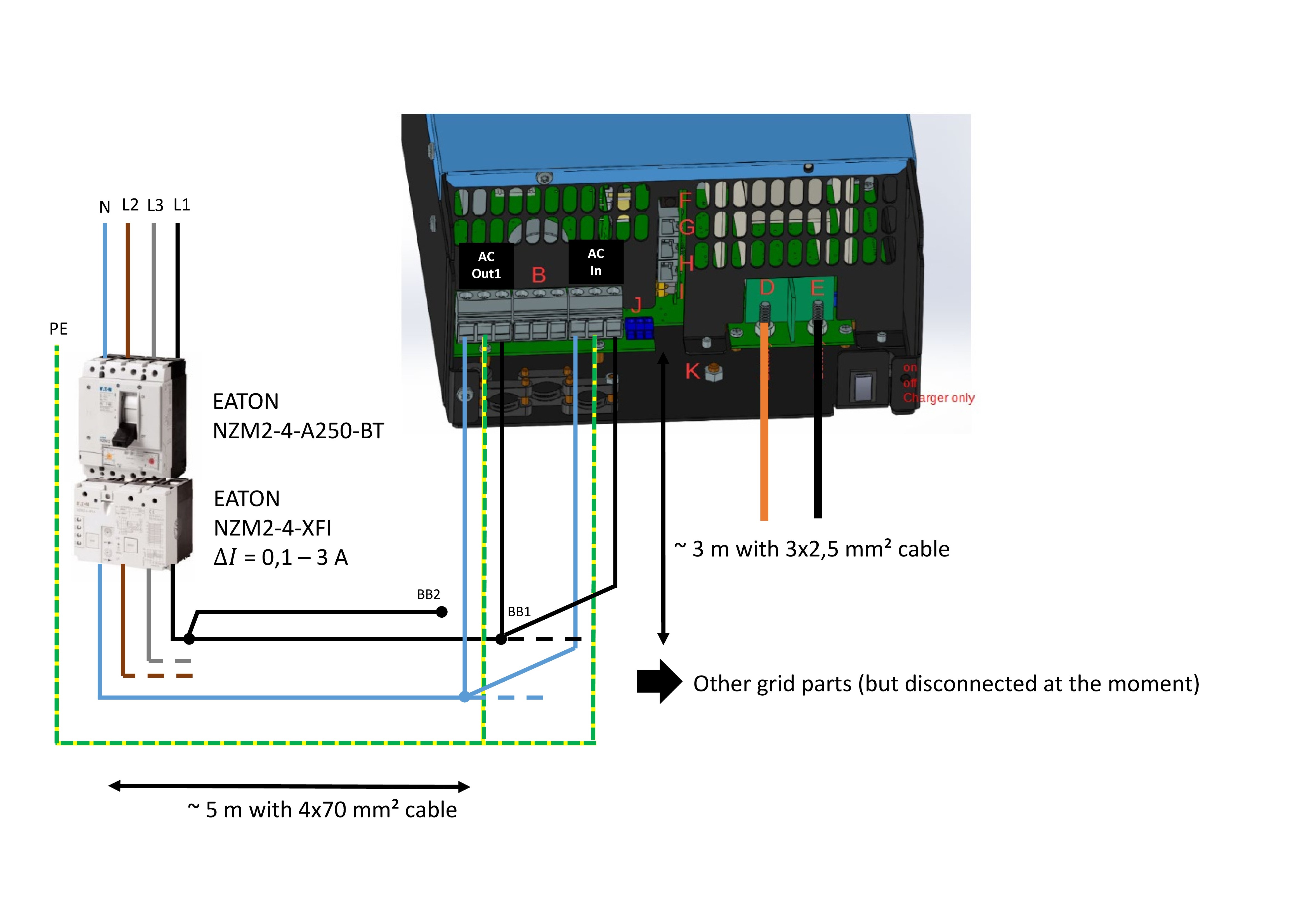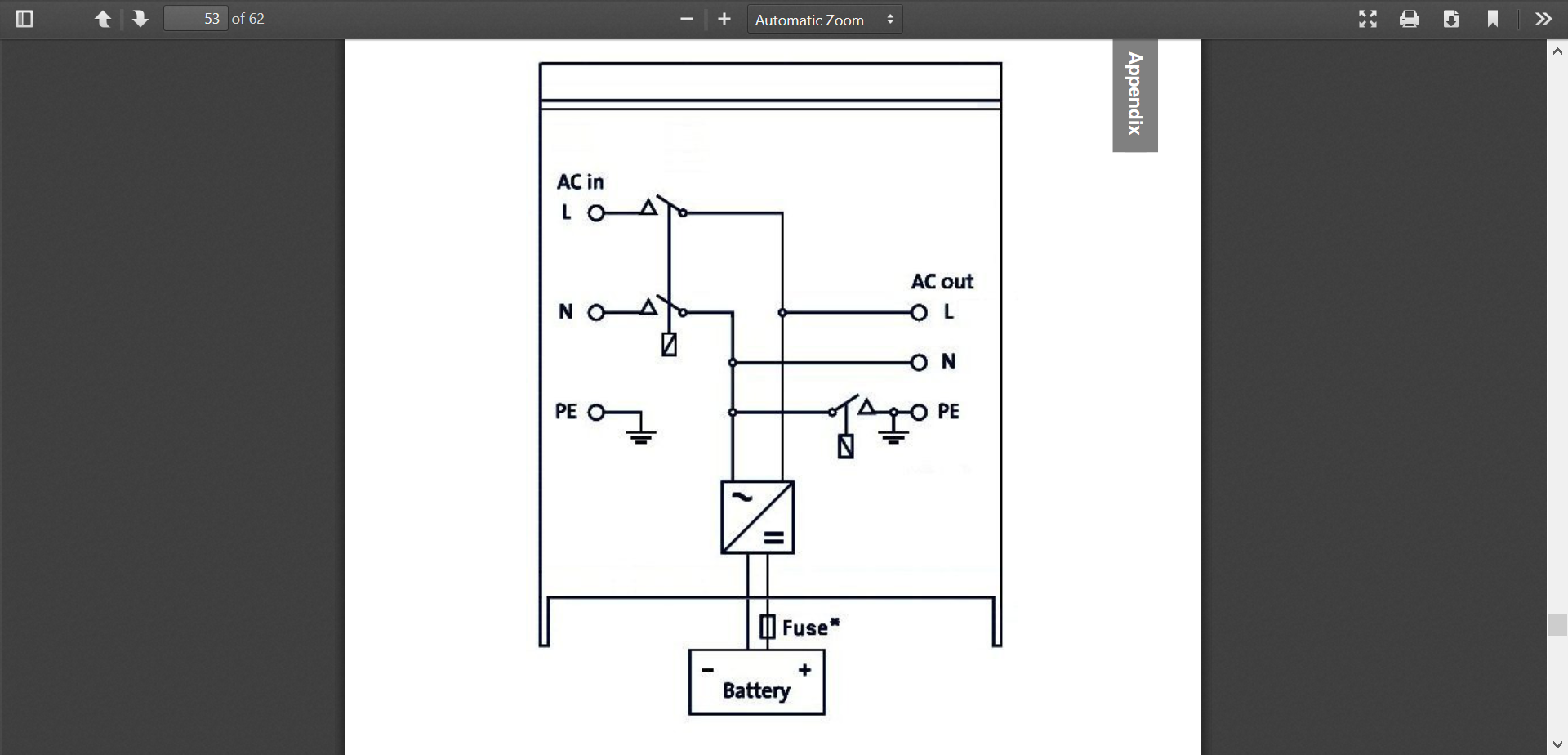Hello everybody,
I working for a university laboratory and this is my first project with Victron components. I am wondering, that I am obviously the only one with this kind of RCD tripping problem. I did not find any contribution in the community place. So I want to give you an extensive overview of our system and the problem.
Our battery-system contains: 3 x MultiPlus2 48/3000/35-32 with 3 x PYLONTECH LiFePO4 48Volt - 3,5 kWh Battery and 3 x Venus GX and is embedded in a test grid with other applications.
In the test grid, neutral and protection wire are separated and the whole test grid is protected by a RCD (Typ A, 250 A, fault current 0,1 A – 3A) due to personal safety in a test area. For the test of the battery-system, I disconnect all other applications from the grid. I only want to charge and discharge the battery. AC Input and AC output1 of the MultiPlus2 are connected to the same busbar.
In charging mode, everything works well. If I switch into inverter mode (using the Venus GX settings), the RCD trips immediately. This happens with all MultiPlus2 and also when I set the allowed fault current of the RCD to maximum (3 A!). When I connect the MultiPlus2 to a grid without RCD, the inverter mode works as well. But, due to safety reasons, we need to have an RCD. And according to the manual, it should be possible.
According to the online manual of the MultiPlus2 (Version 9, December 2019), a type A RCD can be used. According to the manual which comes with the inverter (Version 2, April 2019), only a type B RCD is allowed (@Victron: What is right? I only bought the victron products because of that information in the online manual!).
My question: Will the RCD won’t trip if I buy a (expensive) type B RCD?
I don’t think so. Normally the type B RCD is more sensitive, i.e. it trips in more failure cases.
What else can I do? Disconnecting the earth at the inverters (bad idea)? Can MultiPlus2 work with RCD at all?
I hope somebody having good advice for me.
Best Regards
M. Weisenstein


